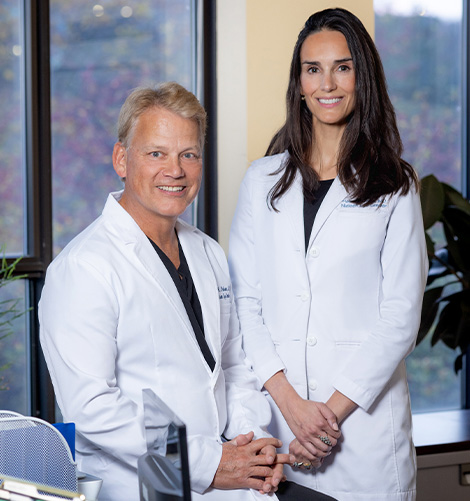Why Cataract Surgery is Worth Itin Boston, MA

Cataracts are a prevalent condition, especially once you reach a certain age. Getting cataracts may make you feel old, but just being above 40 puts you at risk for developing them.
You may not even know you have cataracts at first. At any age, cataracts can become debilitating, making it hard to go about your daily life. Cataract surgery is the only way to treat cataracts. No kind of medication can manage them or dissolve them.
But cataract surgery can give you your vision back, making you see more clearly than you have in years. Keep reading to learn why it’s worth it to have your cataracts removed during cataract surgery in Boston!
Deciding to Have Cataract Surgery

Cataracts occur as a result of proteins in the lens clumping together. When these proteins clump together, they make it harder to see through the natural lens, leading to blurry or cloudy vision.
Cataracts are almost always something that happens because of aging. Besides impairing your vision, cataracts don’t cause any permanent harm.
They can develop slowly and can sometimes take many years before you notice any symptoms. But while treatable, cataracts can eventually cause blindness when they become advanced enough.
When you’re first diagnosed with cataracts, if they aren’t advanced or affecting your vision, you won’t need cataract surgery. Most eye doctors will recommend waiting to have cataract surgery until they begin making it challenging to live your life.
For many patients, this means you can no longer complete your daily activities or hobbies because of your cataracts. An eye exam may reveal the beginnings of cataracts before you notice any symptoms.
It can be difficult to know when you’ve reached the point of needing to have cataract surgery, as symptoms of cataracts and presbyopia can overlap. Presbyopia is another eye condition that’s quite common in adults who are over the age of 40.
Presbyopia makes it harder to focus on nearby objects and can affect patients who also have cataracts. If you have presbyopia, you may find it harder to see things that are up close, like reading the texts on your smartphone or seeing a newspaper.
Symptoms of Cataracts
One common symptom specific to cataracts is trouble seeing in low light. This symptom can make it more difficult to read and drive at night.
If you have trouble driving at night, you may also see glare and starbursts around light sources. This can become especially concerning if there is any oncoming traffic.
The glare from the headlights can temporarily blind you, making it unsafe for you to drive at night. There are other indicators of cataracts, of course.
Other common signs of cataracts include:
- Blurry vision
- Double vision
- Seeing colors as muddy or more faded than they would typically be
- Needing more light to complete tasks
- Experiencing frequently changing eyeglass prescriptions
- Becoming more sensitive to light
If you think that your cataracts are starting to affect your life, the best thing that you can do is talk to your eye doctor. They can help you differentiate between cataract symptoms and symptoms of other issues like presbyopia.
If they determine that your issues are due to your cataracts, you may want to consider having cataract surgery.
A Safe Procedure
Not only is cataract surgery effective, but it’s also a very low-risk procedure. It’s natural to be nervous about any surgical procedure, but cataract surgery is incredibly safe.
It’s been designed to be as minimally-invasive as possible. This allows the recovery after cataract surgery to be more comfortable.
There have been more cataract surgery procedures performed in the country than any other procedure. At Nielsen Eye Center, our cataract surgeons have extensive experience performing laser cataract surgery.
This advanced option for cataract surgery provides our patients with a customized surgical procedure. Thanks to numbing eye drops, you’ll never feel any pain, and you’ll be comfortable the entire time.
The procedure involves creating a tiny incision in the eye and then removing the eye’s natural lens through that incision after breaking it apart so it can fit through the small opening.
Before, patients would no longer have a lens in the eye after having cataract surgery. During modern cataract surgery, this isn’t the case.
With modern cataract surgery, the natural lens of the eye is taken out. After removing the lens, it’s replaced with an artificial lens, called an intraocular lens (IOL).
The IOL is something that you’ll choose ahead of time with your eye doctor. There are many options, so it’s important to review everything available.
You should take your lifestyle and visual needs after cataract surgery into account when making an IOL choice. After inserting the IOL, your cataract surgery procedure is over!
There’s no need for any stitches or sutures because the incision is small enough that it’ll heal on its own. If you have cataracts in both eyes, you’ll come back after the first eye has finished healing. This is usually about eight weeks later.
Life Without Cataracts

Since cataracts develop so slowly, it can be hard to realize how much they’re affecting your vision, even if you know that you need to have them out soon. Many patients who have cataract surgery are astounded at how much better their sight is after having their cataracts removed.
While many age-related eye conditions can irreparably damage your vision, like glaucoma or macular degeneration, having cataract surgery will restore your clear vision. If you can’t see well because of cataracts, there’s little reason not to have cataract surgery.
If you have presbyopia and cataracts, you can have both corrected at the same time! IOLs come in several varieties.
Premium lenses like multifocal IOLs and trifocal lenses can help you see clearly up close without the need for visual aids like reading glasses. There are even IOLs that can correct astigmatism and other refractive errors.
Having cataract surgery can give you your vision back even without a premium lens, but with that bonus, it’s hard to imagine how cataract surgery wouldn’t be worth having!
Ready to say goodbye to your cataracts? Schedule your cataract screening at Nielsen Eye Center in Boston, MA!
Our Patient Advocates are waiting by the phone to answer your questions about cataracts, lenses, or the procedure itself! Give us a call at 617-471-5665 and begin your path back to clear vision in 2021!
Isn’t it time to put your cataracts behind you?






